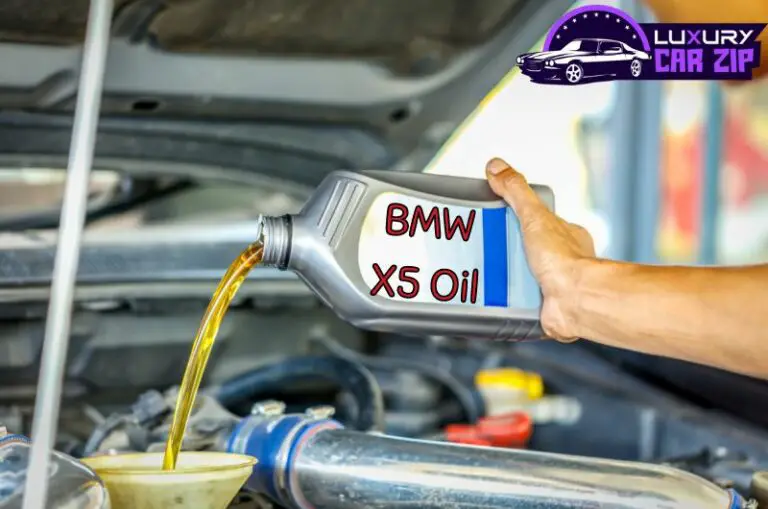![[2003-2024] BMW X5 Oil Capacity and Oil Type - Oils Advisor](https://oilsadvisor.com/wp-content/uploads/2021/11/BMW-x5-oil-type-oi-capacity.jpg)
Navigating the Oil Labyrinth: A Comprehensive Guide to 2025 BMW X5 Oil Types
The BMW X5, a perennial favorite in the luxury SUV segment, is known for its powerful engines, refined handling, and cutting-edge technology. As the 2025 model year approaches, understanding the specific oil requirements for your X5 becomes crucial for ensuring optimal performance and longevity. This comprehensive guide delves into the intricacies of oil selection for the 2025 BMW X5, covering everything from engine types and viscosity to the importance of synthetic oils and the latest advancements in lubricant technology.
Deciphering the Engine Landscape: Understanding the Oil Needs
The 2025 BMW X5 is expected to offer a diverse range of engine options, each with its own unique oil specifications. To navigate this landscape, we must first identify the engine powering your X5:
- The TwinPower Turbocharged Inline-Six: This engine, likely found in the xDrive40i and xDrive45e models, is renowned for its smooth power delivery and fuel efficiency. Its advanced technology, including variable valve lift and direct injection, demands a high-quality oil that can withstand high temperatures and provide exceptional lubrication.
- The TwinPower Turbocharged V8: This powerhouse, expected to be available in the xDrive50i and M50i trims, delivers exhilarating performance. Its increased power output and higher operating temperatures necessitate an oil with superior shear stability and thermal protection.
- The Plug-in Hybrid Powertrain: The xDrive45e model combines a potent inline-six engine with a powerful electric motor. This hybrid system requires an oil that can handle both gasoline and electric power, offering exceptional lubrication and protection across diverse operating conditions.
The Viscous Truth: Understanding Oil Viscosity
Oil viscosity, measured in SAE (Society of Automotive Engineers) grades, determines its thickness at different temperatures. For the 2025 BMW X5, the recommended viscosity range is typically 0W-30, 5W-30, or 0W-40.
- 0W-30 and 5W-30: These oils offer excellent cold-start protection and low-temperature fluidity, crucial for the BMW X5’s advanced engine technology. They also provide adequate viscosity at operating temperatures, ensuring optimal lubrication and fuel efficiency.
- 0W-40: This oil offers enhanced viscosity at higher temperatures, ideal for models with powerful V8 engines or those subjected to extreme driving conditions.
Synthetic vs. Conventional: The Oil Revolution
The choice between conventional and synthetic oil is a critical decision. Synthetic oils, crafted from carefully engineered molecules, offer several advantages over conventional oils:
- Enhanced Performance: Synthetic oils exhibit superior shear stability, resisting breakdown under high stress and maintaining optimal viscosity over time. This ensures consistent lubrication and engine protection, even under demanding conditions.
- Improved Fuel Efficiency: Synthetic oils offer lower friction, reducing power loss and improving fuel economy. This translates to better performance and reduced environmental impact.
- Extended Drain Intervals: Synthetic oils possess superior oxidation resistance, allowing for longer oil change intervals and reduced maintenance costs.
- Cold-Start Protection: Synthetic oils maintain their fluidity at lower temperatures, ensuring optimal lubrication from the first engine start, especially crucial in colder climates.
BMW’s Specific Oil Recommendations
BMW, known for its rigorous standards, recommends specific oil types for its vehicles. For the 2025 X5, the recommended oil will likely adhere to the BMW Longlife-04 or BMW Longlife-17 specifications. These specifications guarantee compatibility with the X5’s advanced engine technology and ensure optimal performance and longevity.
The Latest Advancements in Lubricant Technology
The world of lubricants is constantly evolving. Here are some notable advancements that are likely to influence the oil choices for the 2025 BMW X5:
- Low-SAPS (Sulphated Ash, Phosphorus, and Sulphur) Oils: These oils are designed to minimize harmful deposits in the engine’s exhaust system, contributing to reduced emissions and improved fuel efficiency.
- Friction Modifier Technology: Advanced friction modifiers are being incorporated into oils to further reduce friction, improving fuel economy and engine performance.
- Nanotechnology: Nanotechnology is being explored to enhance oil performance by adding microscopic particles that provide additional lubrication and wear protection.
Choosing the Right Oil for Your 2025 BMW X5: A Step-by-Step Guide
- Consult Your Owner’s Manual: The owner’s manual is the most reliable source for specific oil recommendations for your 2025 BMW X5. It will specify the correct viscosity, oil type, and required specifications.
- Check the Engine Oil Cap: The engine oil cap often provides a reminder of the recommended oil type and viscosity.
- Consult a BMW Dealer or Certified Mechanic: BMW dealers and certified mechanics are well-versed in the specific oil requirements for your X5 and can provide expert advice.
- Use High-Quality Oils: Always choose high-quality oils that meet or exceed the BMW specifications. Avoid using generic or substandard oils, as they may compromise engine performance and longevity.
The Bottom Line: A Lubricant Legacy
Choosing the right oil for your 2025 BMW X5 is not just about maintaining performance; it’s about preserving your vehicle’s longevity and safeguarding its investment. By understanding the complexities of oil selection, you can ensure that your X5 continues to deliver its legendary driving experience for years to come.
Note: This article is intended as a general guide and does not replace the specific recommendations in your 2025 BMW X5 owner’s manual. Always consult your owner’s manual and consult with a BMW dealer or certified mechanic for accurate and up-to-date information.
![[2003-2022] BMW X5 Oil Type & Oil Capacity - Oils Advisor](https://oilsadvisor.com/wp-content/uploads/2021/11/bmw-x5-oil-type.jpg)






